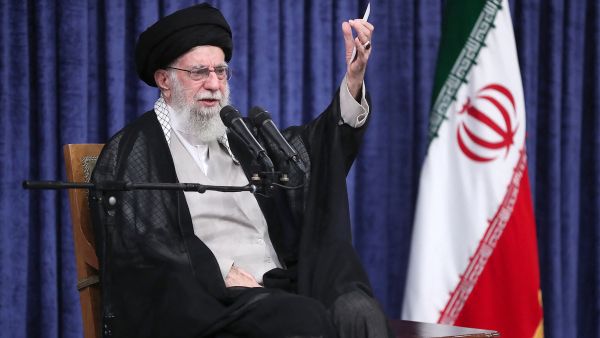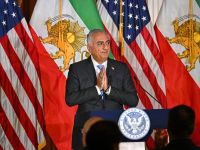ALBAWABA - On Sunday, Iran's Supreme Leader Ali Khamenei said that Tehran would not give in to U.S. attempts to pressure or control Iran. He also rejected calls for direct talks with Washington during a time of heightened tensions in the region.
Khamenei said through state media that those who want to talk to the US "don't see the whole picture," and he stressed that the problem can't be solved by negotiations that are forced by threats or pressure.
His comments come at a very tense time in the Middle East, with rising rhetoric, military threats, and a higher chance of conflict between Iran, Israel, and the United States.
Major General Yahya Rahim Safavi, who is the senior adviser to Iran's Armed Forces Commander, said earlier this week that the chance of war "remains high" and that Iran is getting ready for the worst. In comments to the IRNA news agency, Safavi stressed that Iran is "not in a ceasefire but in a state of war" and warned that any temporary calm could end at any time because there are no agreements or security protocols with the US or Israel.
Safavi also said that Washington and Tel Aviv think "peace can be achieved through force," and he said that Iran needs to strengthen its military and regional influence to fight back against these pressures.
Israeli Prime Minister Benjamin Netanyahu has also raised tensions by giving Tehran a list of direct demands and warning that not following them could lead to a "heavy military price." Israel wants Iran to stop enriching uranium completely, which would effectively end the core of its nuclear program.
It also wants Iran to stop developing ballistic missiles or limit their range to less than 300 miles, as agreed upon by the international community. Finally, Israel wants Iran to stop supporting armed groups in the region like Hezbollah, Hamas, and Iraq's Popular Mobilization Forces, which Israel calls terrorist groups. Netanyahu said that Israel would take strong action if Tehran didn't agree to these terms, which made people worry that there might be a direct conflict.
The renewed exchange of threats and warnings has put the region on edge. Analysts say that the lack of diplomatic frameworks or ways for the parties to talk to each other makes it more likely that someone will make a mistake.
Both Iran and Israel have promised to respond strongly to any perceived aggression. Observers say that the region is entering a dangerous phase where even a small incident could lead to a larger conflict.










